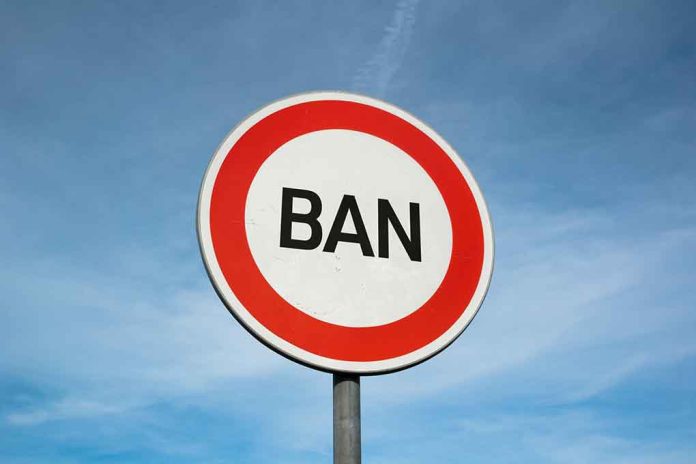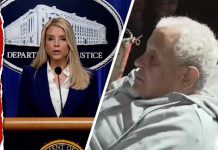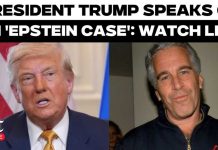
Russia’s latest crackdown on Western influence targets British cultural organizations while accusing the UK of being the “instigator of wars” and masterminding global crises.
Key Takeaways
- Russia has officially blacklisted the British Council as an “undesirable organization,” effectively banning its operations in the country
- Moscow explicitly accused London of being the “architect of global crises” and an “instigator of wars,” signaling a significant diplomatic deterioration
- The Russian Prosecutor General specifically cited the British Council’s promotion of “LGBT movement” ideology as part of its justification for the ban
- This action follows years of worsening UK-Russia relations, exacerbated by espionage scandals including the 2018 Skripal poisoning and strong British support for Ukraine
- The designation creates severe legal consequences for anyone continuing to work with the organization inside Russia
Russia Intensifies Anti-Western Stance
In a move reflecting the Kremlin’s increasingly hostile stance toward Western institutions, Russian authorities have officially labeled the British Council an “undesirable organization.” This designation effectively criminalizes any cooperation with the cultural and educational organization within Russian territory. The ban represents the latest development in President Putin’s systematic dismantling of independent civil society and international connections, particularly since Russia’s 2022 invasion of Ukraine, which has drawn widespread condemnation from Western nations including the United Kingdom.
“Russia on Thursday designated the British Council as an undesirable organization, as Moscow labeled London the architect of global crises and instigator of wars,” stated State media.
The Russian Prosecutor General’s office justified its decision by accusing the British Council of promoting foreign interests while attempting to shape Russian citizens’ worldview according to British cultural and political values. Moscow specifically singled out the organization’s support for LGBT rights advocacy, which runs directly counter to Russia’s increasingly conservative social policies that outlaw what officials term “LGBT propaganda.” This cultural conflict highlights the deepening ideological divide between Russia and Western nations.
Moscow’s Accusations Against London
Russian authorities didn’t limit their criticism to the British Council’s cultural activities. In an extraordinary escalation of rhetoric, Russia’s Federal Security Service (FSB) characterized the United Kingdom as a primary instigator of global instability. These accusations frame Britain as not merely a supporter of Ukraine but as a malevolent force deliberately undermining global stability, revealing Moscow’s need to cast Western nations as aggressors to justify its increasingly isolated international position.
“London organizes coups, weakens not only its geopolitical enemies but also its closest allies, pits nations against each other and prevents the resolution of bloody conflicts that it unleashed,” stated FSB.
The designation comes amidst Russia’s broader crackdown on foreign influence, with numerous Western-backed organizations already blacklisted. Under Russian law, the undesirable status imposes severe legal consequences, with individuals continuing to work with such organizations facing potential criminal charges and imprisonment. This legal framework effectively severs yet another channel of cultural exchange between Russia and the West, furthering the Kremlin’s apparent goal of insulating Russian society from external influences.
Historical Context of Deteriorating Relations
Relations between Russia and the United Kingdom were already severely strained before Russia’s invasion of Ukraine, with multiple flashpoints accelerating the diplomatic breakdown. The 2018 poisoning of former Russian spy Sergei Skripal and his daughter in Salisbury, England, marked a particular low point, with Britain directly accusing Russia of conducting a chemical weapons attack on British soil. Russia’s categorical denial of involvement, despite substantial evidence, highlighted the growing pattern of hostile relations.
Britain’s robust support for Ukraine since the beginning of Russia’s full-scale invasion has further inflamed tensions. The UK has consistently ranked among Ukraine’s strongest backers, providing significant military aid and training to Ukrainian forces fighting Russian troops. This support has made the UK a particular target for Russian propaganda, with state media regularly portraying Britain as a primary antagonist encouraging conflict rather than diplomacy. The British Council ban thus fits within a broader narrative of retaliation against perceived Western interference.
Implications for Cultural Diplomacy
The British Council has traditionally served as a vital bridge for cultural and educational exchange between the UK and countries worldwide, including Russia. Its activities typically include language teaching, arts programming, and educational opportunities. By severing this connection, Russia continues its pattern of cultural isolation, cutting ordinary Russian citizens off from international engagement opportunities while reinforcing the government’s narrative of a hostile West determined to undermine Russian sovereignty and values.
President Putin’s administration has systematically eliminated spaces for independent civil society in Russia, with particular intensity since the Ukraine invasion. Human rights organizations have documented widespread repression of dissenting voices, with thousands arrested for opposing the war. The targeting of the British Council represents another step in this process, eliminating yet another potential source of alternative viewpoints within Russian society while reinforcing the Kremlin’s increasingly hostile stance toward Western nations.













